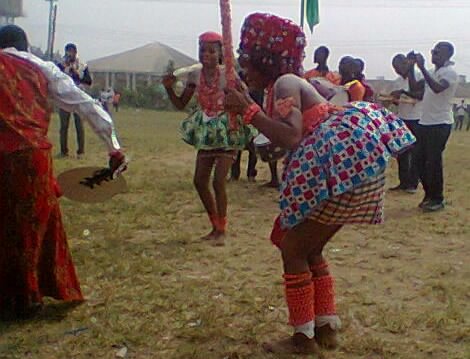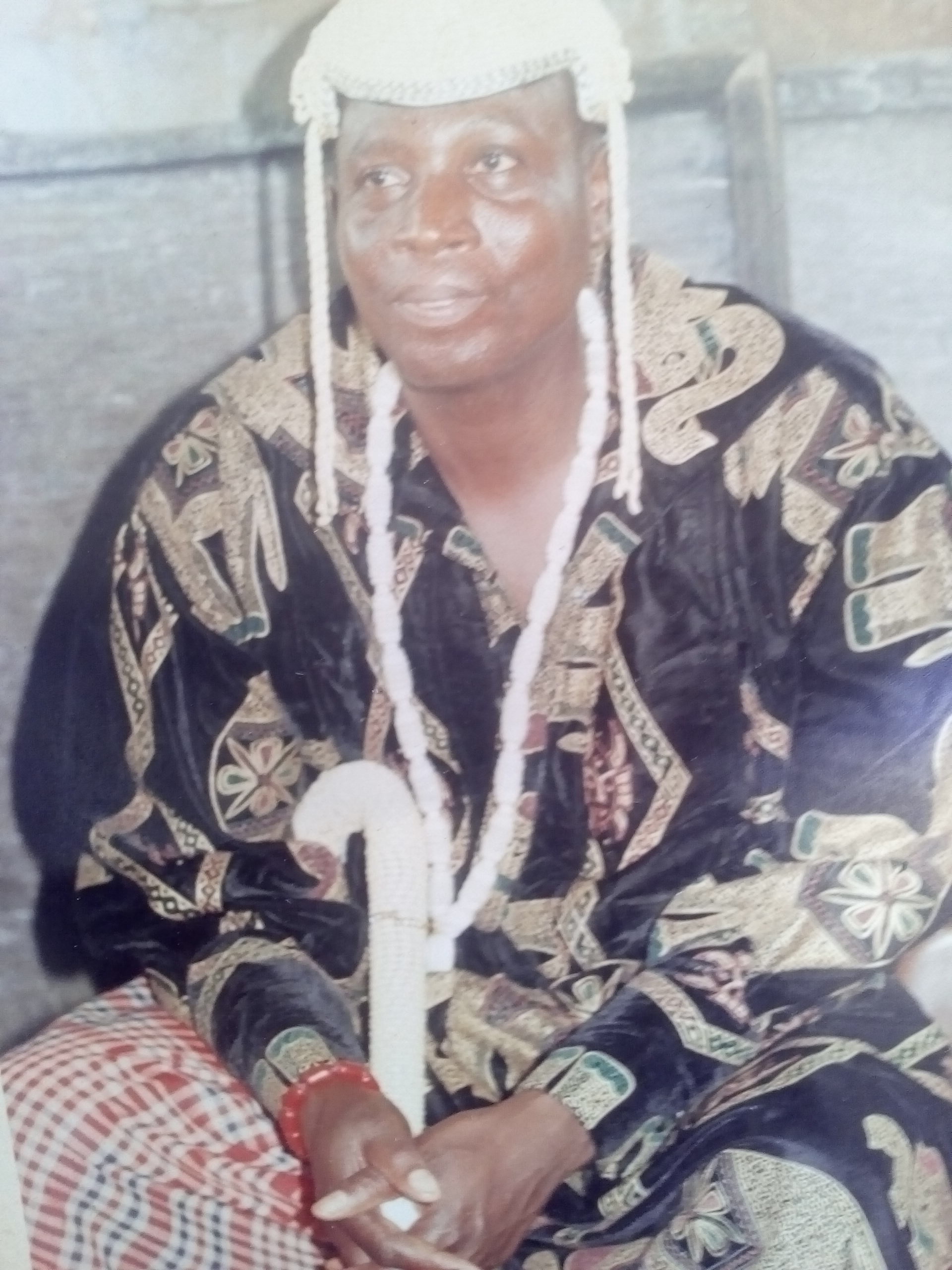Youths Unemployment and Insecurity in Eleme
By High Chief Ollorwi Osaro
Introduction
Unemployment is a term referring to people who are employable and actively seeking jobs but are unable to find jobs. Included in this group are those people in the workforce who are working but do not have an appropriate job – underemployment. Usually measured by the unemployment rate, which is dividing the number of unemployed people by the total number of people in the workforce; unemployment serves as one of the indicators of a country’s economic status.
On the other hand insecurity is the state of being unsure. It is period of constantly expressing fear, anxiety, and uncertainty. It is a time of thinking, and some of these thoughts can be filled with doubt, hopelessness, fear and anxiety. When there are no jobs and the hope of meeting the basic human needs are far from realization frustration sets in; evil thoughts override reasoning, and the individual explores several avenues including criminal means to put body and soul together, and make ends meet.
The population of Eleme is estimated to be about 304, 608 as at 2020, out of which the youth population, (15 – 35 years of age) is said to be 75%. It is also estimated that about frightening 60% of Eleme youth population is either unemployed or underemployed, a situation that possess great danger to the society in terms of crimes and assorted social vices.
Such a large population of unemployed, unengaged, angry, sullen, unproductive youths in any society will constitute a menace and security risk because their lives appear hopeless and yet they are full of youthful energy.
For a long time probably since the creation of Eleme Local Government Area in December, 1996, the Eleme youths have been on bondage as a result of unemployment caused by faulty institutional structures, corruption, illiteracy and poor management of resources. Though unemployment is a national phenomenon, the situation in Eleme has reached the crises state,
Insecurity in Eleme is characterized by cultism, gangsterism, violence, kidnapping, assassinations, armed robbery, vandalism, theft, environmental insecurity and other vices in the area. Youths form the bulk of unemployed and are burden to the local government. Before now agriculture is the mainstay of Eleme people.
Eleme has topography of flat plains netted in a marvellous web of rivers, creeks, streams and swamps including the Bonny River, Nololo Creek, Gberekpii Creek, Okulu Creek, Ochani Creek and Wamba Creek, among others. A good climate with many rivers and creeks and vast areas of arable land make the people of Eleme predominately farmers and fishermen. But the oppressive and forceful acquisition of their lands for multinational and national companies and oil exploration and production activities and mindless pollution of the environment has robbed the people of agricultural activities and afflicted them with severe pains including food insecurity and poverty.
Yes, unemployment is responsible for food insecurity and has caused majority of Eleme youths to develop the feeling of inadequacy and uncertainty; they see themselves as not good enough. Unemployment produces high degree of anxiety about ones goals, relationship, and ability to handle certain situations.
Youth unemployment have significantly contributed to the dramatic rise in criminal activities such as armed robbery (Salami, 2013), cultism, prostitution, theft, civil unrest, abductions and kidnapping of persons irrespective of status, religion or age. Youth unemployment is a major challenges facing Eleme today. Admittedly, the problem of youth unemployment is a national problem due to corruption and the high poverty levels requiring all of us to work in order to ensure not only survival but security.
Again, Eleme youths are linked to violence, cultism, kidnapping and sometimes robbery by unemployment. Unemployment in Eleme has given to rise street crimes such snatching of motorcycles, handsets and other valuables at gun point. We have witnessed slightest resistance resulting in shooting the victim to death and carting away the items. Really, the rate of youth unemployment in Eleme has reached crisis point requiring consistent government urgent action to create jobs and prosecute all individuals who have corruptly enriched themselves thereby denying Eleme youths the opportunities of being employed.
The Eleme youth has become more disillusioned by the day, especially with the strong feeling of frustration about his inability to be employed when he is capable, willing and qualified to work and especially the realization that active companies are dotted here and there around him and he sees vehicles railing thousands of people to and from work on daily basis.
Emphatically, the increasing rate of unemployment amongst Eleme youths has increased the wave of armed robbery, prostitution, kidnapping, cultism, illegal oil bunkery, and on-going abductions of citizens and residents with reckless abandon as well as the popular street crimes.
During the courtesy visit on the Executive Chairman of Eleme Local Government Area, Chief Hon. Obarilomate Ollor (JP) in his office at Ogale by the Executives of KAGOTE led by its President, Emmanuel Deeya the Council Chairman expressed displeasure over the attitude of multinationals operating in Eleme cosmopolitan area when it comes to employment of Eleme youths.. He observed that lack of job creation, skills and vocational training of the teeming youths of the land by these companies results in increase criminality and heightened the insecurities suffered in the area in recent past.
Again, during the courtesy visit by the leadership of Ogoni Ethnic Nationality to His Excellency Muhammadu Buhari GCFR, President and Commander-In-Chief of the Armed Forces of the Federal Republic of Nigeria, on Friday, 22 October, 2021 it also re-echoed that the provision of gainful employment for our teeming youths will “check restiveness” in the area.
The impact of unemployment in Eleme is being felt by both the rich and the poor. In fact, unemployment has made it impossible for many couples in Eleme to face the challenge and crisis of marriage necessitating high level of divorce. The ripple effect of unemployment in Eleme can better be imagined than felt. It is a serious social and economic issue that results in a tremendous impact on everything but is often overlooked.
The presence of numerous multinational and national companies operating in Eleme, and the high level of unemployment among our youths in the area calls for concern by all.
A stronger system of assessing unemployment in Eleme should be put in place in order to determine its causes and how to address it better.
The problem of unemployment in Eleme is further compounded by some chiefs and leaders turn contractors who sell jobs openings and opportunities to strangers, and/or pay Eleme indigenes enslavement monthly salary of 20% or less of their total entitlement. This is demonic and acute wickedness. Instead of selling job opportunities to strangers, please declare them for sale to Eleme youths so that they can buy, work and grow on the job.
Similarly, the war against unemployment in Eleme cannot be won with the existing narrow, myopic and selfish definition of host community. Distinction has to be made between immediate landlords (landowners) and the community at large. The definition of host community needs to be broadened to encompass the whole of Eleme that suffer the impacts of environmental pollution and degradation arising from the operations of these companies. The impacts of pollution does not know Ebubu person neither does effects of environmental degradation recognize Ekporo person. All those within the radius suffer equally.
Also, efforts should be made by governments at all levels to create jobs and strengthen job market regulation in Eleme so that Eleme youths with education or skills can live a meaningfully and contribute to the development of the area.
Government and policy makers should strengthen the local content/host community regulations relating to employment of citizens of the host communities in order to give job chances our youth with the relevant skills and education.
Government should build strong economic institutions and those already in place, be strengthened to create jobs for the youths for Eleme youths.
The power sector in Eleme demands immediate attention for power is the heart-beat of the local informal and formal sector to drive the economy.
Efforts should be made to encourage vocational, technical and entrepreneurial education in Eleme for self-employment; while corruption and mismanagement of our resources ought to be dealt with vigour.
Eleme people in Diaspora with capital should be encouraged to come home and invest.
Education should be made free and compulsory in Eleme, at least to secondary school level. Heads of schools that levy pupils/students unnecessarily or make one illegal monetary demand or the other should be fished out and brought to book.
Finally, the Eleme Local Government Council should strengthen and empower the Eleme Employment Bureau (EEB) as an Agency of the Local Government, to update its Unemployment Data Base (UDB) and seriously scout for jobs from all the multinational and national companies operating in Eleme as well as Federal and State Governments establishments, ministries and agencies, etc. for the teeming unemployed youths of Eleme extraction.
As KAGOTE President, Emmanuel Deeya said, “Eleme is the hub of the petroleum industry in Nigeria…..People cannot do business in an unsecure environment” Of a truth, it is the corporate social responsibility (CSR) of organisations doing business in Eleme to employ Eleme citizens. The host community philosophy upholds that; the local contents legislation supports that. Even the much talk about immediate catchment area guideline adheres to that. Eleme has given more, Eleme deserves more! Eleme is the mainstay of Nigeria’s economy!
If the employable Eleme youths are taken off the streets and properly engaged in gainful employment, and companies in Eleme regularly pay relevant revenues instead of hiding under Abuja cover, and execute their corporate social responsibility as demanded by law, the attention of the Eleme Local Government will not be diverted to insecurity, but concentrate and devote all its efforts and resources towards the development of the area, and in no distance time Eleme will see what is called real development and transformation.
High Chief Ollorwi Osaro
E-mail: ollorwiosaro@gmail.com
Website: www.ollorwi.com.ng
Tel.: +234 8036694027


 GOVERNMENT POSITION ON ELEME LANGUAGE
GOVERNMENT POSITION ON ELEME LANGUAGE







